AITA for threatening to quit my job because my wife just randomly quit hers?
When money meets marriage, things can quickly spiral into a high-stakes tug-of-war. In today’s story, a 35-year-old man details the chaos that ensued after his wife quit her job on a whim—thanks to a hefty inheritance—leaving him to shoulder most of the household expenses.
While they live in North Dakota and he earns $52k a year at a property management job he despises, his wife now enjoys a steady income from her inherited trust and a rented-out house in a high-cost area. Despite their seemingly comfortable joint finances, a simmering resentment over who pays what has turned everyday living into a battleground.
Feeling that he’s been unfairly burdened and that her lavish spending and sudden job resignation are selfish moves, he threatened to quit his own job if the status quo continues. Is he the a**hole for demanding fairness, or is he right to push back when financial responsibility seems one-sided?

‘AITA for threatening to quit my job because my wife just randomly quit hers?’
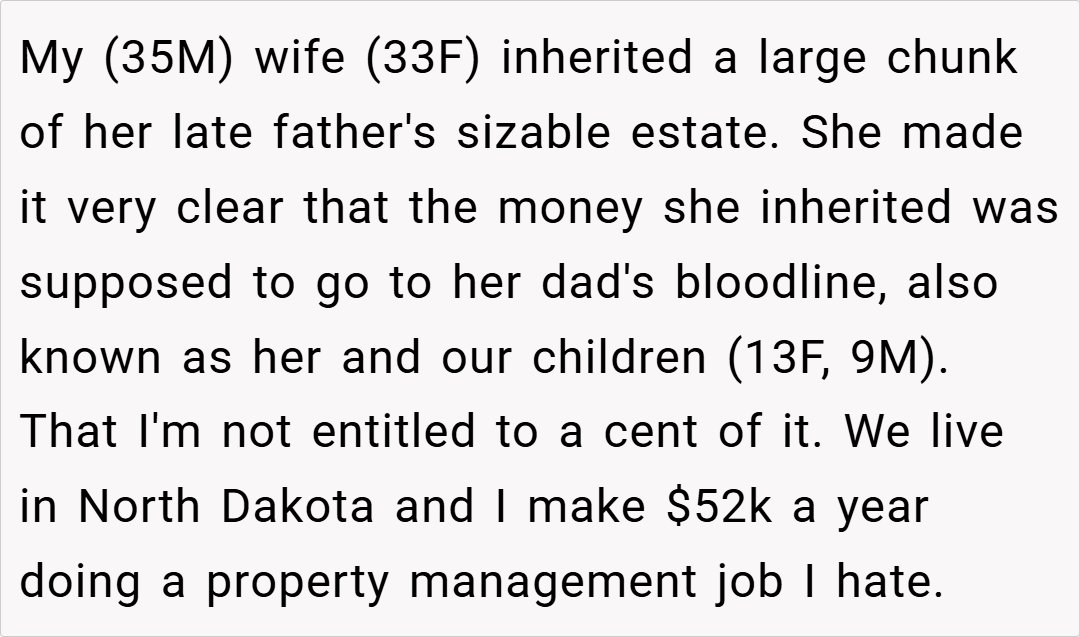


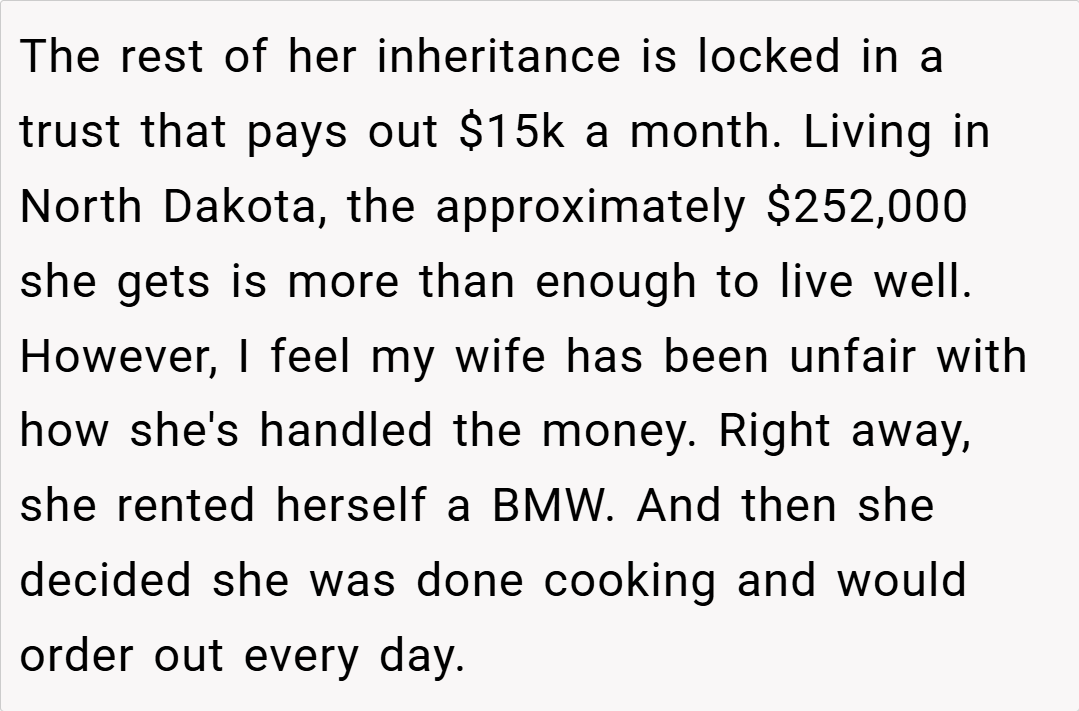

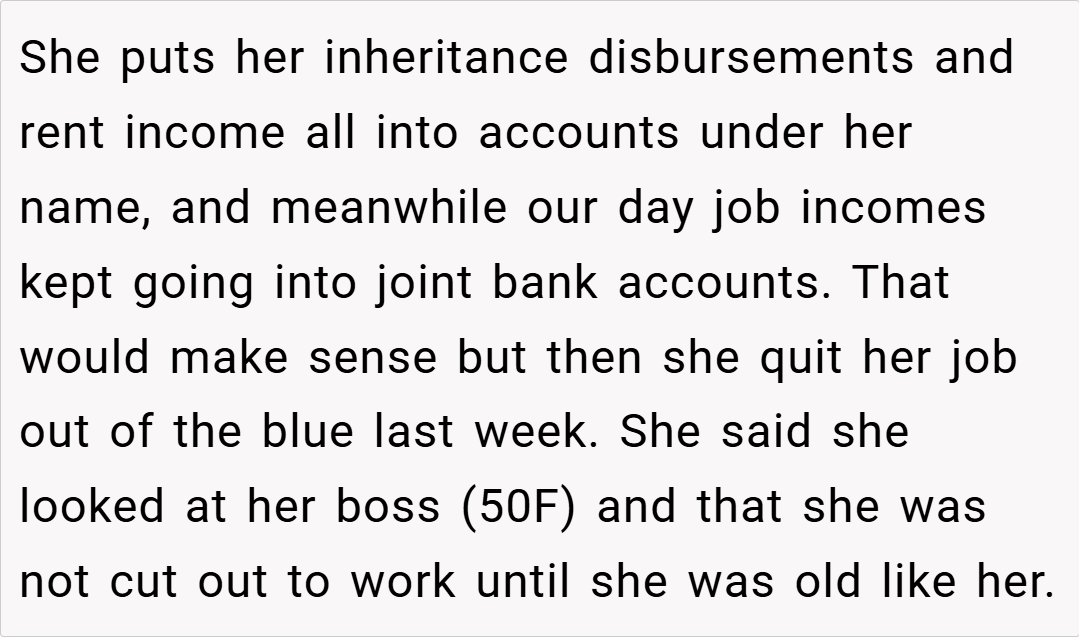
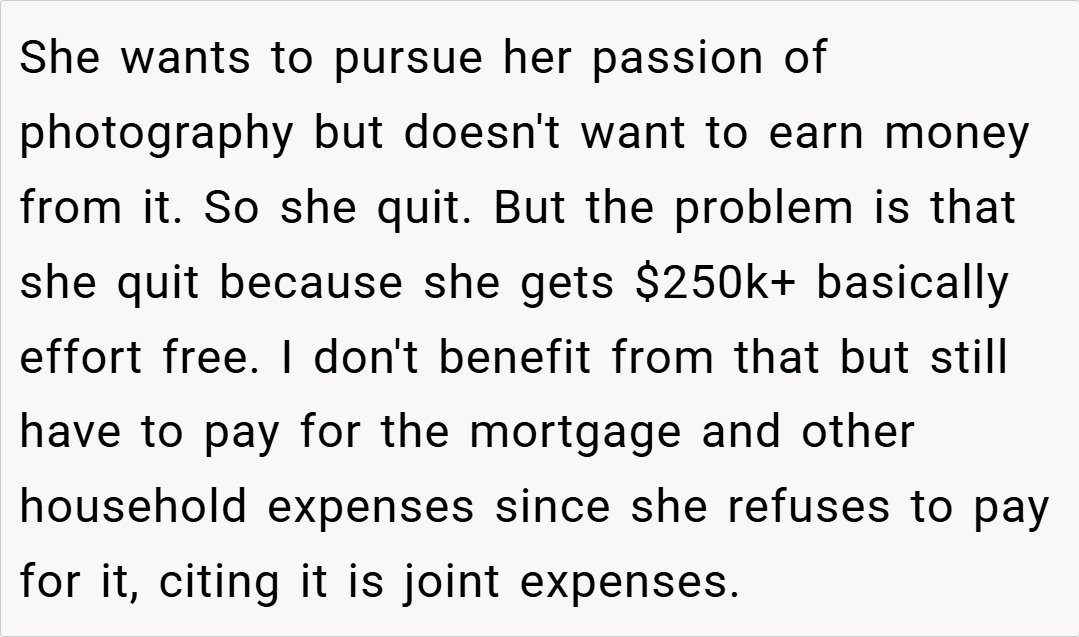
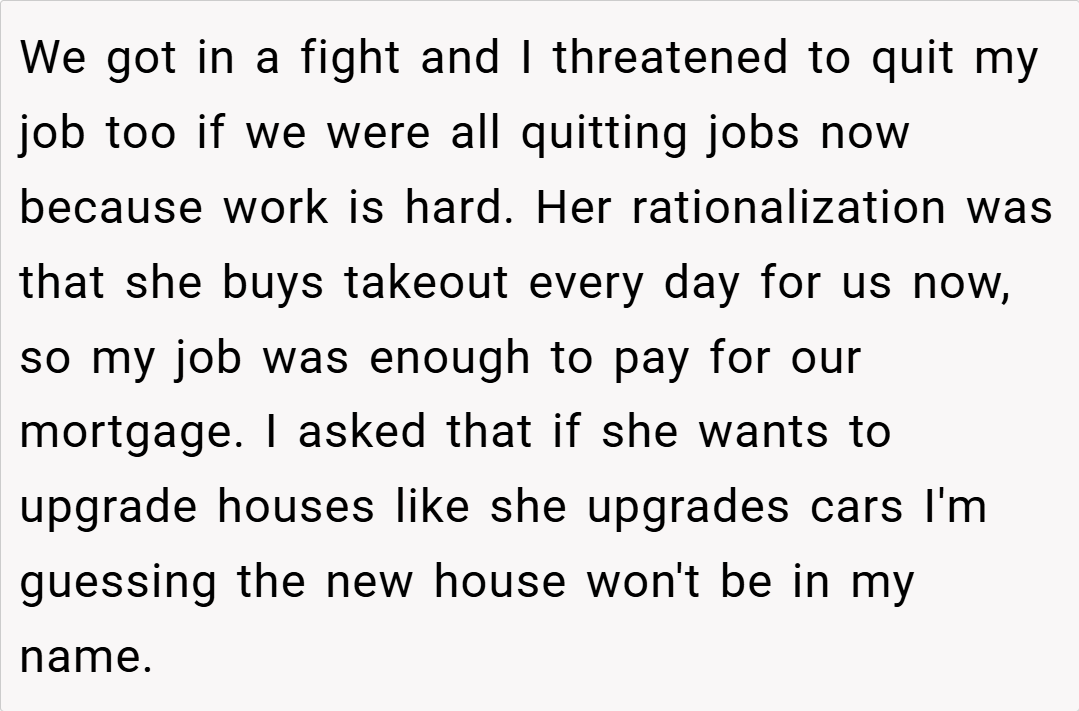
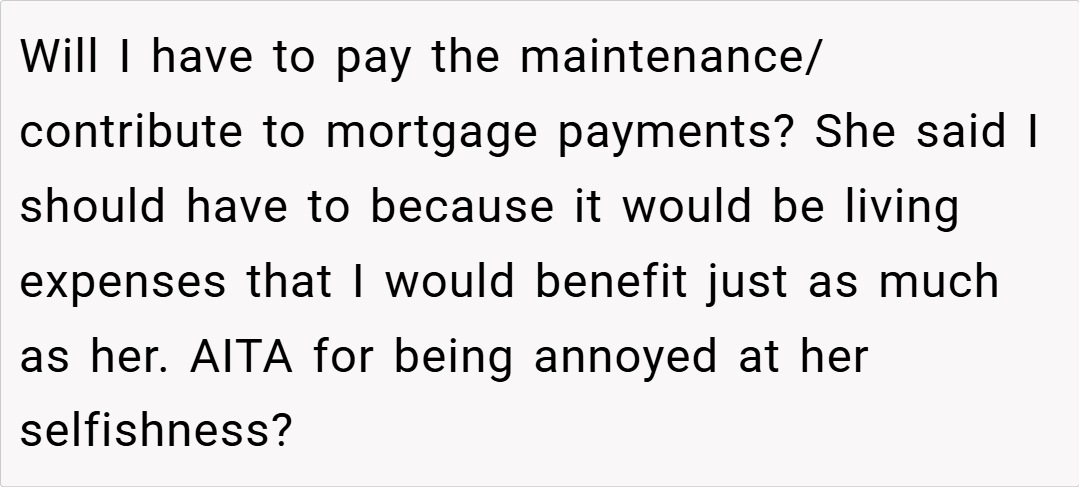
Expert Opinion
Letting financial inequity fester in a marriage is a recipe for long-term resentment, as relationship expert Dr. Laura Markham explains. “Money and responsibility are common flashpoints in relationships. When one partner consistently feels that the burden isn’t shared fairly, it can erode trust and lead to significant emotional distress.”
Dr. Markham’s observations underline that the writer’s frustration isn’t about greed—it’s about feeling undervalued and overburdened despite contributing more to everyday expenses. Dr. Markham further notes that, “When one partner inherits substantial wealth and begins to live extravagantly without contributing proportionately to shared expenses, it can create a significant power imbalance in the relationship.”
In this case, the writer’s wife inherited a large portion of her late father’s estate and now receives a generous income through rental properties and trust payouts. Meanwhile, he’s left with a taxing job he dislikes and feels pressured to fund joint expenses like the mortgage. Such an imbalance is bound to breed tension, especially if the money is being handled in separate accounts that obscure the true picture of their shared financial responsibilities.
Relationship therapist Dr. John Gottman also emphasizes the importance of transparency and fairness in financial matters. “A marriage functions best when both partners feel that their contributions—monetary or otherwise—are recognized and balanced,” he says.
In our writer’s situation, his wife’s unilateral financial decisions, including quitting her job to live off her inheritance, have left him feeling isolated and exploited. He is forced to bear the brunt of joint expenses, despite not benefiting from her newfound financial freedom.
Dr. Gottman suggests that couples engage in regular, honest discussions about money management and household responsibilities. “Without clear communication, even substantial wealth can become a source of conflict,” he warns. In this case, the lack of open dialogue about how inheritance money should be used and shared has fueled his frustration.
His threat to quit his job, although extreme, is a cry for equitable partnership and recognition of his own contributions. Ultimately, his actions are not about punishing his wife—they are about reclaiming a sense of fairness and partnership in their shared financial life.
These are the responses from Reddit users:
Several redditors voiced strong support for the writer’s stance, with one user commenting, “It’s not about the money itself—it’s about fairness. If you’re picking up all the financial slack while your partner lives luxuriously off inherited wealth, you have every right to be upset.” This perspective resonated with many who have felt similar imbalances in their relationships.
Another group shared personal stories of financial tension in their marriages, emphasizing that open financial communication is crucial. One commenter wrote, “When one partner starts living large with inherited money, it often creates a power imbalance that can strain the relationship. It’s completely reasonable to expect an equal share of the responsibilities.” Their experiences underscored the challenge of reconciling personal finances with joint obligations.



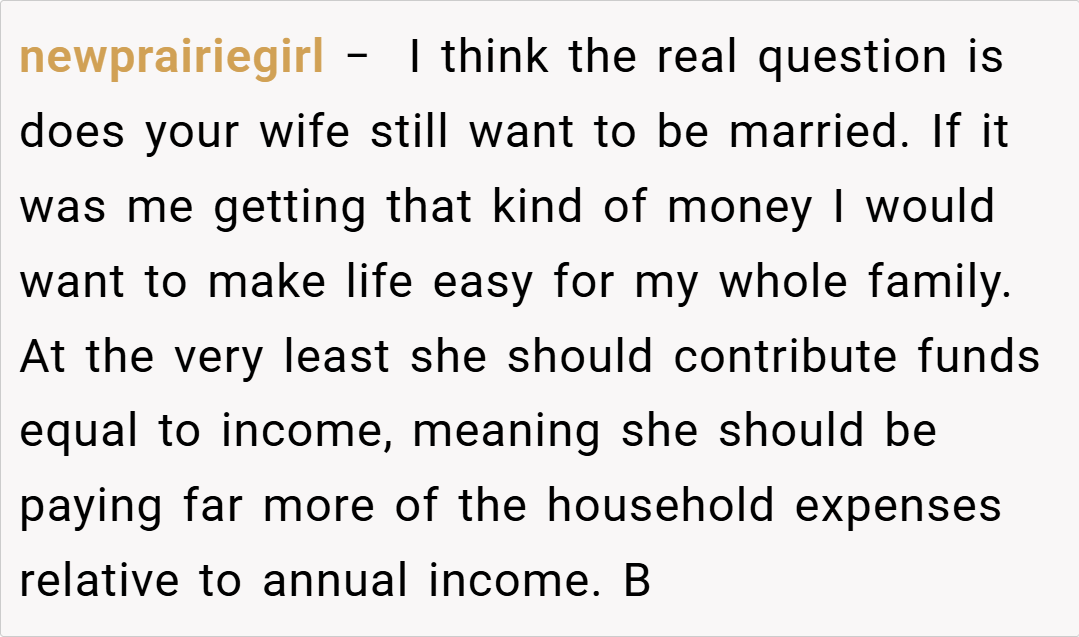
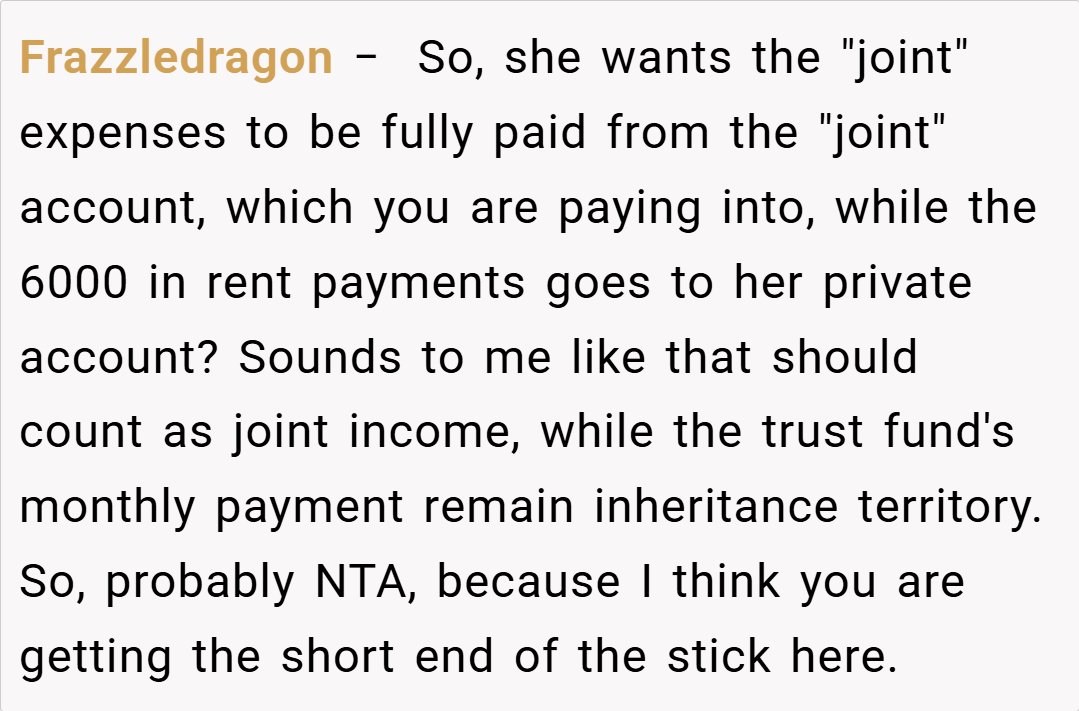

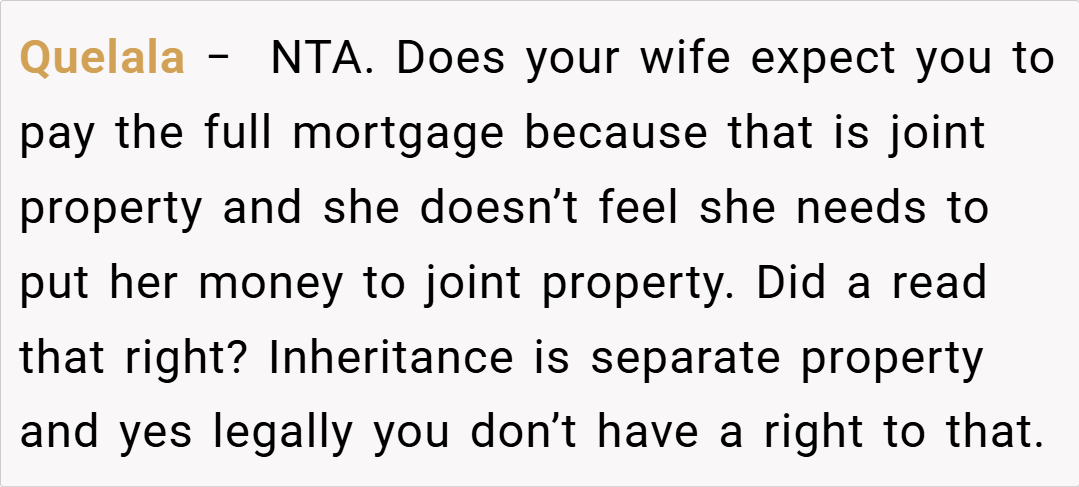



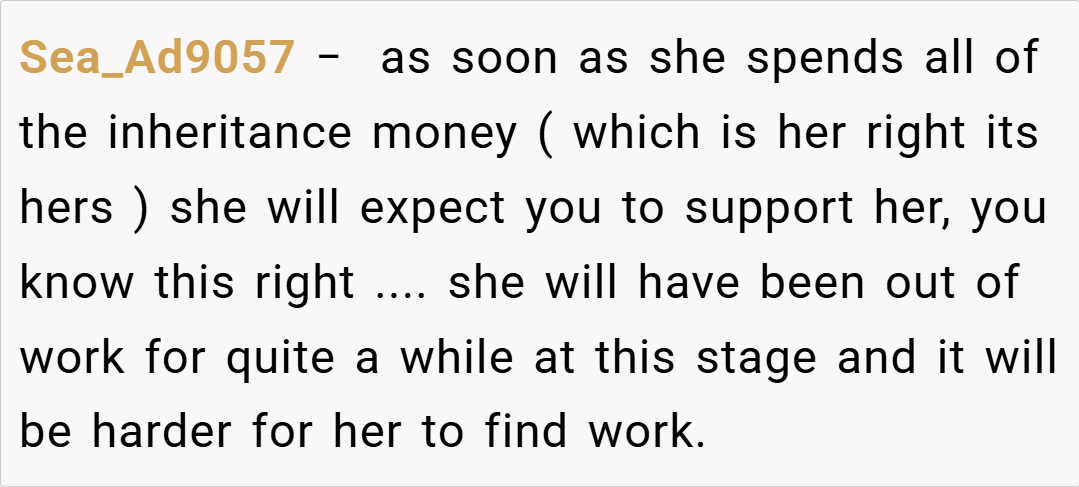


In the end, your frustration over your wife’s sudden decision to quit her job and live off her inheritance while you continue to work at a job you despise is completely understandable. Your threat to quit your job isn’t about being petty—it’s about demanding fairness and transparency in a marriage where both partners should share responsibilities.
The situation raises important questions: How should couples manage financial disparities, especially when one partner inherits a fortune? Is it reasonable for you to expect a more balanced approach to joint expenses?
What would you do if you were in a similar situation? Have you ever faced a financial imbalance in your relationship? Share your thoughts and experiences in the comments—let’s discuss how to navigate the tricky waters of money, marriage, and mutual responsibility.

